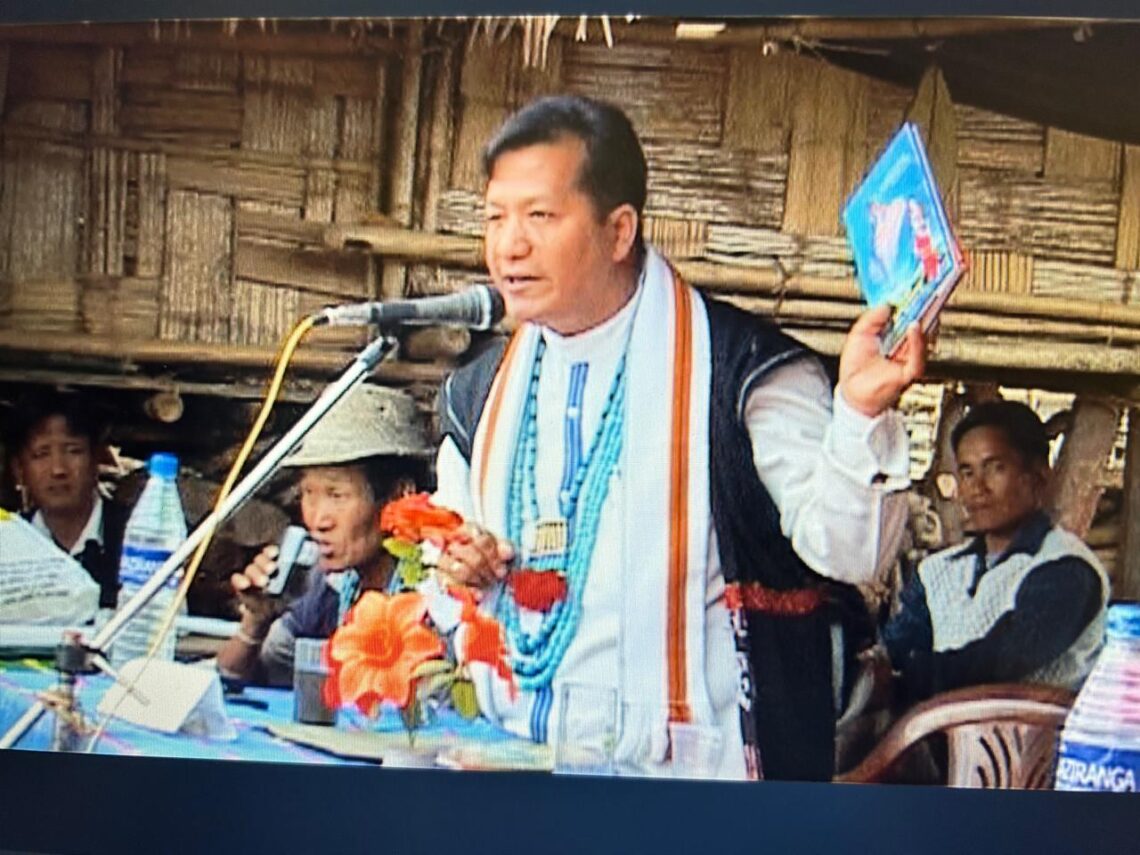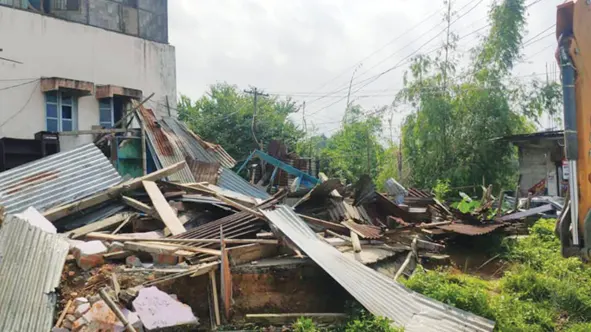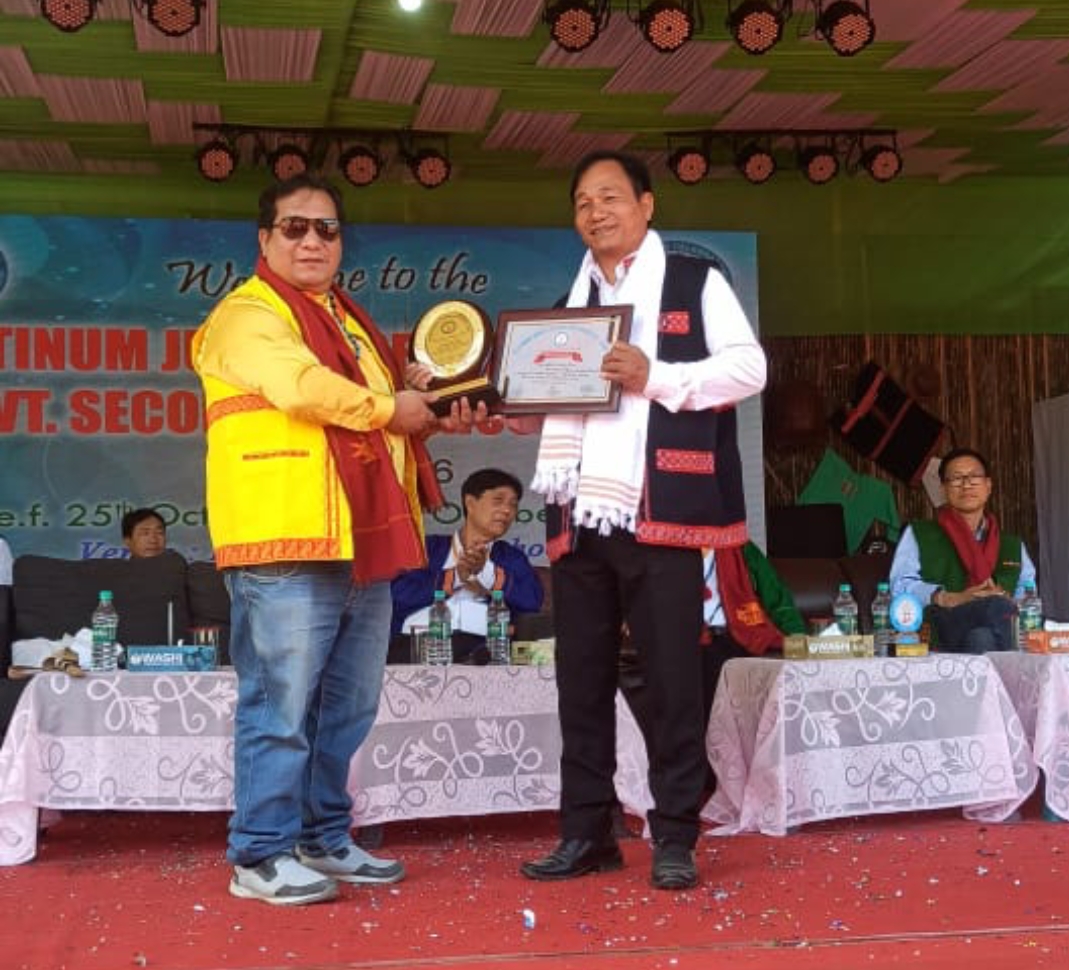A Visionary Advocate for Language and Heritage
In the breathtaking landscapes of Arunachal Pradesh, located in northeastern India, Dr. Tony Koyu has emerged as a pivotal figure in the preservation of indigenous culture and language. As a scholar, writer, social reformer, scientist, and inventor, Dr. Koyu exemplifies a renaissance spirit, deeply committed to championing the identity and heritage of the Tani people amidst the challenges posed by modernization and globalization.
A Scholar and Literary Innovator
Dr. Koyu’s academic journey is characterized by his profound dedication to the Tani language, a rich linguistic tapestry spoken by various indigenous communities in Arunachal Pradesh. His scholarly contributions have significantly enriched the understanding of the language, providing insights that resonate within academic circles and beyond.
In addition to his scholarly works, Dr. Koyu is a prolific writer of novels in the Tani language. These groundbreaking narratives tackle contemporary themes and sensual subjects, paving the way for modern literary genres within indigenous languages. By presenting stories that reflect local experiences, he successfully bridges the gap between traditional narratives and contemporary societal issues, bringing Tani culture to a broader audience.
A Social Reformist and Cultural Guardian
Dr. Koyu’s impact extends beyond academia and literature into the realm of social reform. He founded the Kargu GAMGI movement, a grassroots initiative dedicated to preserving and promoting the traditional faith system of the Galo community, one of Arunachal Pradesh’s prominent ethnic groups. This movement serves as a vital platform for cultural education and community cohesion, helping to foster a renewed sense of identity among the Galo people.
Through Kargu GAMGI, Dr. Koyu has addressed various contemporary social issues while safeguarding the community’s cultural heritage. The movement organizes workshops, cultural festivals, and educational programs that celebrate Galo traditions, encouraging younger generations to engage with their cultural roots. By empowering the community to reclaim and revitalize their heritage, Dr. Koyu plays a crucial role in fostering cultural resilience.
An Inventor and Advocate for Education
Dr. Koyu’s intellectual pursuits also encompass significant advancements in science and technology. He is the inventor of Tani lipi, a standardized writing system designed for the languages of Arunachal Pradesh. This innovative script offers a means to document oral traditions, ensuring their preservation for future generations.
The creation of Tani lipi marks a pivotal moment in the evolution of writing systems in India. By establishing a cohesive framework for literacy, Dr. Koyu’s invention has broadened access to education and cultural expression. Schools and community organizations across Arunachal Pradesh are increasingly adopting Tani lipi, facilitating a new wave of literary production and cultural documentation.
A Champion for Cultural Heritage
Dr. Koyu’s dedication to preserving and promoting indigenous culture encompasses a wide range of initiatives. He has played a vital role in documenting traditional knowledge systems, including music, dance, and the arts. His efforts are crucial in safeguarding the unique cultural practices of Arunachal Pradesh, many of which are at risk of disappearing in an increasingly globalized world.
Through various initiatives, Dr. Koyu promotes indigenous music and arts, organizing cultural exchanges and performances that showcase the talents of the Tani people. His advocacy for indigenous rights ensures that marginalized voices are heard in the broader socio-political landscape, highlighting the importance of cultural preservation in contemporary society.
A Visionary for the Future
Dr. Koyu’s vision for the future of indigenous communities is both empowering and transformative. He advocates for a balanced approach that embraces modernity while preserving cultural identity. His focus on sustainable development seeks to respect the ecological wisdom of indigenous peoples while addressing contemporary challenges such as climate change and social inequality.
Central to his vision is the empowerment of indigenous communities to fully participate in modern society without losing their cultural heritage. Dr. Koyu emphasizes the importance of educational reform that prioritizes indigenous knowledge and languages, ensuring that future generations are equipped to thrive in a rapidly changing world while remaining connected to their roots.
A Lasting Influence
Dr. Tony Koyu’s legacy reaches far beyond the borders of Arunachal Pradesh. His work has inspired indigenous communities worldwide, offering a model for cultural resilience in the face of globalization. As he continues to advocate for cultural preservation, social reform, and linguistic innovation, his influence is likely to resonate for generations to come.
In a world that is rapidly evolving, Dr. Koyu serves as a reminder of the power of individual action and its profound impact on cultural heritage. As Arunachal Pradesh navigates its future, the contributions and vision of Dr. Koyu will undoubtedly shape the narrative of indigenous identity and empowerment in the region.
Conclusion
Dr. Tony Koyu stands out as a remarkable figure dedicated to the preservation and promotion of indigenous culture. His multifaceted contributions as a scholar, writer, social reformer, scientist, and cultural advocate illustrate the significant impact of individual commitment to effect meaningful change. As Arunachal Pradesh continues to evolve, Dr. Koyu’s vision and efforts will play a crucial role in fostering pride, identity, and cultural richness among the indigenous communities he serves.




















